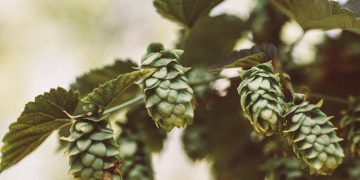Turkey is one of the most fortunate countries in the world, being endowed with a wide range of ecological conditions. Therefore, many species of fruits and vegetables, ranging from a few tropical, many subtropical and almost all temperate zone species are produced in Turkey. The cultivation is performed widely along the Mediterranean and Aegean coasts of Turkey throughout the year. The annual fresh fruit production in Turkey is more than 17,2 million tons, which accounts for an important part of world production. Grapes, apples, oranges, peaches, pears, soft citrus, figs, apricots, cherries, plums, quinces, strawberries, rose hips and pomegranates are the most outstanding species, which are valuable sources of nutrients besides their pleasant taste.
Over the past three decades there has been a structural change in the pattern of world fruit consumption. The share of processed fruit consumption has increased because of the improved uniform quality, year round availability and increased convenience of processed forms, while fresh consumption has declined. Among various processed forms, fruit juices have always been one of the most popular forms of processed fruits in the World and many people feel that breakfasts are incomplete without fruit juice since they constitute important place in the diet. The Turkish fruit juice industry started its production in the late 1960s and has flourished rapidly thanks to modern production units, new investments and the advantage of abundant fresh fruit production. There are more than 40 brands of about 35 producer companies, some of which have both fruit processing and bottling lines while some others only deal with either fruit processing or the bottling of fruit juices.
The fruit species that are processed into fruit juice in Turkey are apples, sour cherries, apricots, peaches, or anges, grapes, soft citrus, grapefruits, lemons, quinces, strawberries and pomegranates. Apple juice concentrate is the main production item and sour cherry juice is the second majör product in the sector. Almost all of the fruits that are used as raw material in the fruit juice industry are obtained from domestic production.
EXPORTS
The availability of large quantities of fruit allowed the establishment of export-oriented, sophisticated and efficient fruit juice plants in Turkey. Exports of fruit juices and concentrates started with a symbolic quantity of 6 tons in 1970, and after that showed a rapid and steady increase, reaching approximately 109 thousand tons in 2011. Generally, apple, citrus (mainly orange) and pomegranate juice concentrates are produced for exporting. In addition to them, sour cherry juice and some fruit nectars, mainly peach and apricot, are produced for the domestic market and some are exported as well.
Apple juice was the most important export item in 2011. It accounted for almost 108 million US dollars in 2011. Other fruit and vegetable juices, including sour cherry, peach, apricot, pear and some tropical fruit juices, were the second major item with a significant share in the same year.
Among citrus juices, orange juice was the major export product with an export value of 3,2 million USD in 2011. Mixed fruit juices (e.g. pear and apple juice mixtures) were another important export product with an export value of almost 8 million US dollars in 2011. Although having relatively insignificant shares in exports, other fruit juices such as grape juice, tomato juice, lemon juice, grapefruit juice are promising items for export. For Turkish fruit juice exports, Germany was one of the most important export markets with an export value of approximately 42,3 million USD in 2011. The Netherlands, the United Kingdom and Belgium were among the key fruit juices and concentrates exports markets in 2011.

















